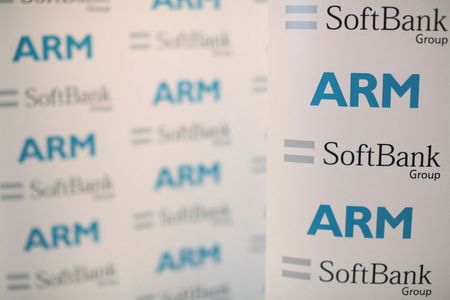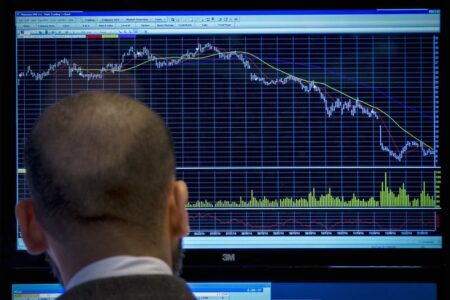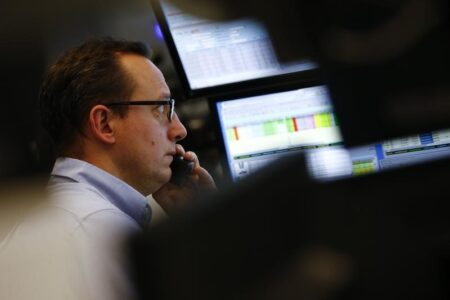Investing.com– Shares of Japanese tech conglomerate SoftBank Group Corp (TYO:) rose on Friday after its chip design unit Arm saw a heavily oversubscribed debut in U.S. markets, with its valuation also racing past initial projections.
Arm’s shares finished their first day of trade at $63.59, about 25% above the $51 offer price. The jump saw the chip designing firm land a market capitalization of roughly $65 billion, much more than the $54 billion valuation projected in the offering.
Gains spilled over into Softbank (OTC:), with the tech conglomerate’s shares rising 2.7% to 6,750.0 yen by 21:05 ET (01:05 GMT) in Tokyo trade.
The Arm initial public offering is the year’s biggest IPO, and saw many of the chip designer’s biggest clients participating as cornerstone investors. Apple Inc (NASDAQ:), NVIDIA Corporation (NASDAQ:) and Alphabet Inc (NASDAQ:) were among the biggest investors in the firm.
Softbank clinched about $4.87 billion from the IPO, gaining a much-needed cash injection as the conglomerate struggles with a severe downturn in the value of its technology holdings over the past year. CEO Masayoshi Son had earlier signaled that the funds will be deployed towards making aggressive plays into artificial intelligence (AI), with recent reports also suggesting that Softbank plans to develop its own generative AI.
Arm’s listing marks the close of a long-running attempt by Softbank to cash out on the chip designer. The conglomerate had agreed to sell Arm to Nvidia for $40 billion in 2021, although the plan was scuttled due to regulatory hurdles.
Demand for Arm’s IPO was also largely underpinned by growing optimism over an AI boom this year, which chipmakers such as Nvidia predict will fuel a major bump in chip demand over the coming years.
Arm’s designs are used in a variety of smartphones and computers, making the firm a key player in the global chip industry. But a recent decline in chip demand also saw the firm log a loss in the second quarter, as weaker device sales resulted in smaller royalties.
Still, any increases in chip demand, especially on the back of an AI boom, are likely to benefit Arm.
Read the full article here












